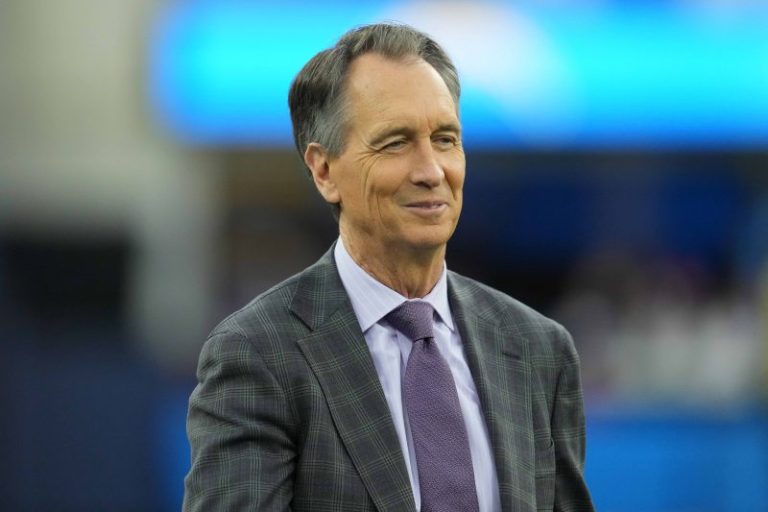The NFL’s Thanksgiving slate in 2025 will conclude with an AFC North battle between the Baltimore Ravens and Cincinnati Bengals.
NBC will broadcast the game and will have most of its No. 1 broadcast crew on the call for the game.
However, one notable member of the crew will be absent. Game analyst Cris Collinsworth will not be on the call for the game. Instead, he will be replaced by Jason Garrett, who will work alongside the network’s primary play-by-play guy Mike Tirico on the broadcast.
Why isn’t Collinsworth in the booth for Thursday’s game? Here’s what to know about the 66-year-old’s Thanksgiving schedule.
Where is Cris Collinsworth?
Collinsworth won’t be working on Thanksgiving, but his absence was planned. The veteran color analyst is simply taking the holiday off, just as he did in 2024 and has in other seasons.
Collinsworth was last on the NBC broadcast for the Week 12 ‘Sunday Night Football’ battle between the Los Angeles Rams and Tampa Bay Buccaneers. That marked the 500th game of Collinsworth’s broadcasting career.
Collinsworth is expected to be in the booth for NBC’s Week 13 ‘SNF’ game between the Washington Commanders and Denver Broncos.
Who is replacing Cris Collinsworth?
Jason Garrett will be replacing Collinsworth in the booth on Thanksgiving. The former Cowboys coach started working for NBC in 2022 as a studio analyst is no stranger to backing Collinsworth up in the book.
Garrett called NBC’s Thanksgiving game in place of Collinsworth last season, working alongside Tirico for the Green Bay Packers vs. Miami Dolphins game.
NBC has also placed talents like Tony Dungy, Rodney Harrison and Drew Brees in the booth as backups to Collinsworth.
All the NFL news on and off the field. Sign up for USA TODAY’s 4th and Monday newsletter. Check out the latest edition: Greatest football and food holiday is here.

